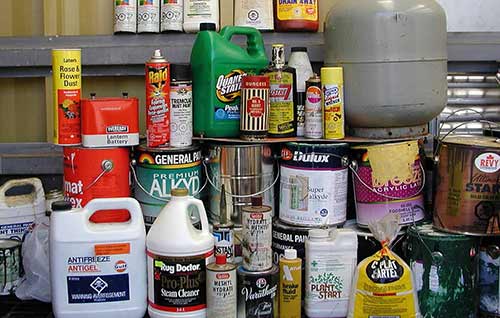Keeping your home clean and organized can feel overwhelming, especially when life gets busy. On top of managing daily chores, dealing with household hazardous waste like old paint cans, expired batteries, and leftover cleaning products can add to the stress. These items clutter your space and pose potential risks to your family and the environment if not handled properly. Here are four strategies to help you get started reducing hazardous household waste today.
1. Read Before You Buy
Making better purchase decisions is one of the most effective ways to reduce hazardous waste. Before buying any product, consider if there are safer alternatives. For example, opt for water-based paints instead of oil-based ones or choose biodegradable cleaning products rather than those containing harsh chemicals. Don’t forget about quantities: by buying only how much you need, you can minimize waste and reduce the potential for hazardous materials to accumulate. By being mindful of the products you bring into your home, you can significantly cut down on the amount of hazardous waste you generate.
2. Use Up, Give Away, or Donate Old Products
The best choice for a product—regardless of if it’s hazardous or not—is to use it instead of disposing of it. If you don’t have a use for it yourself, find someone who does.
- Use Up: Another way to reduce household hazardous waste is by fully using up the products you already have before buying new ones. This approach not only reduces waste but also saves you money.
- Give Away: If you have items that you no longer need or cannot use up, consider giving them away to friends, family, or neighbors who might have a use for them.
- Donate: Many communities also have programs where you can donate certain items, such as paint, cleaning supplies, and electronics. For a list of possible donation programs to schools, nonprofits, and other organizations in Massachusetts, check out this link.
3. Recycle When Possible
Many hazardous products can be recycled, reducing the overall environmental impact. For instance, batteries, electronics, and certain types of paint can often be recycled rather than thrown away. Recycling these items prevents harmful chemicals from entering the landfill and allows for the recovery of valuable materials that can be reused. For MA Residents, check out this MassDEP link (Massachusetts Department of Environmental Protection) for recycling and collection events for hazardous products.
4. Take Advantage of Programs and Services in Your Neighborhood
If using, donating, or recycling aren’t options, many municipalities offer Household Hazardous Waste collection programs or host events where residents can drop off their hazardous waste for safe disposal. If your community doesn’t have any current events, think about contacting your Board of Health (BOH) to request one. Here at NEDT, we work with BOHs to provide discounted or free disposal services to MA communities.
NEDT also offers hazardous household product disposal at any time of the year, regardless of municipal programs. Take advantage of our collection services (open five days a week) or our pick-up service to get hazardous waste out of your home right now! By utilizing these services, you can rest assured that your hazardous waste is being managed in an environmentally friendly manner. Find the collection center nearest to you, and contact us today if you have any questions!



Leave a Reply